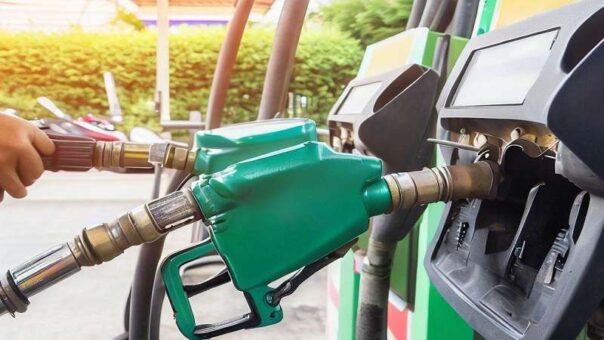August 9, 2023 – The government of Pakistan has announced the latest petroleum prices, revealing the rates for petrol and diesel in the country.
As per the official statement, the price of petrol has been set at Rs 272.95 per liter, while the rate of high-speed diesel stands at Rs 273.40 per liter.
READ MORE: Domestic Sales of High-Speed Diesel Falls by 9% Due to Smuggling of Iranian Oil
These newly updated prices will remain in effect until August 15, 2023, unless revised earlier. The announcement follows the recent increase in petroleum prices made by the outgoing government in its statement on July 31, 2023.
The finance ministry clarified that the recent surge in international market rates for petroleum products has had a direct impact on domestic prices in Pakistan. The cost of petrol increased from $89.14 to $97.39 per barrel, and the price of high-speed diesel rose from $96.26 to $111.46 per barrel between July 16, 2023, and July 31, 2023.
READ MORE: FPCCI Slams Outgoing Government for Shocking Petroleum Price Surge
While attributing the rise in domestic prices to global market conditions, the ministry emphasized that the government’s control over these price hikes is limited. The link between the cost of petroleum products in Pakistan and fluctuations in international market rates necessitated the adjustment of domestic prices.
Amidst the challenging economic situation, the government urges citizens to prepare for the temporary price hike and encourages energy conservation measures during this period. Authorities are closely monitoring the international market situation to make necessary policy adjustments that can effectively mitigate the impact on domestic petroleum prices.
READ MORE: Pakistan Releases Official Petroleum Prices for First Half of August 2023
With the global energy market undergoing fluctuations, the government aims to strike a balance between providing affordable fuel to the public and safeguarding the national economy from the impact of rising international prices.
Furthermore, the government reaffirms its commitment to implementing long-term energy policies that promote energy efficiency, explore alternative energy sources, and reduce dependency on imported fuels. These measures are designed to ensure energy security and sustainability for the nation in the future.
